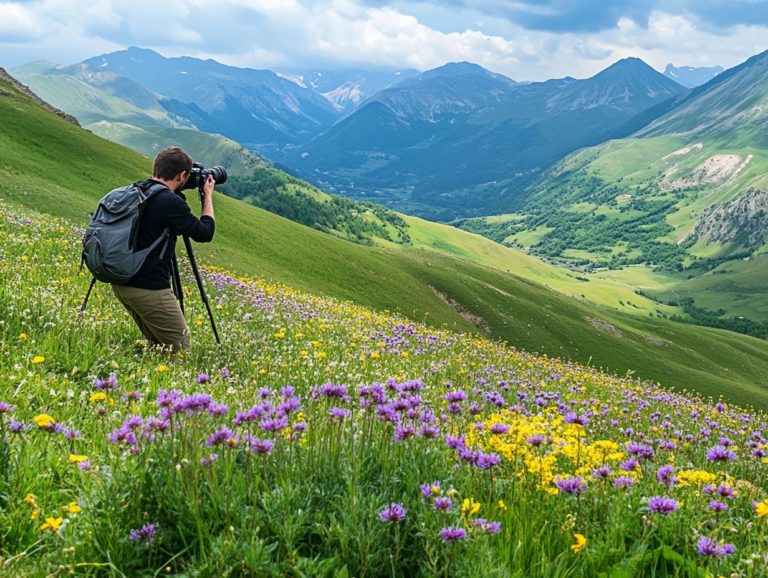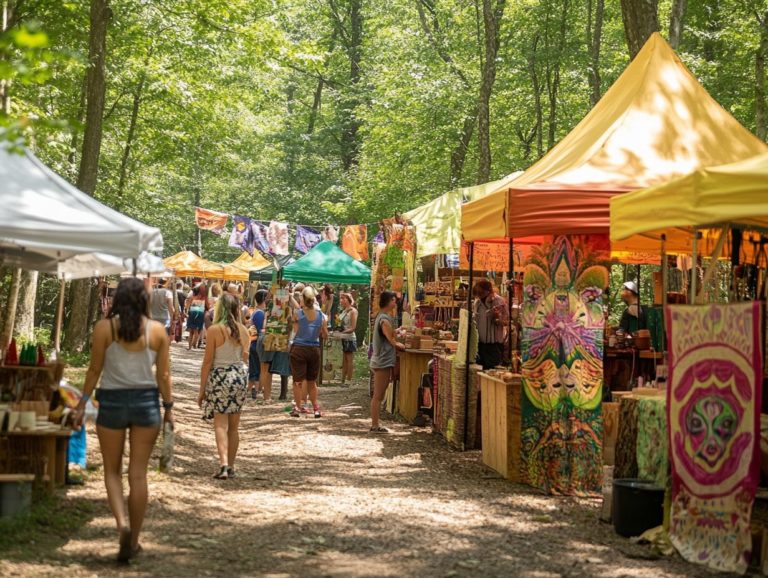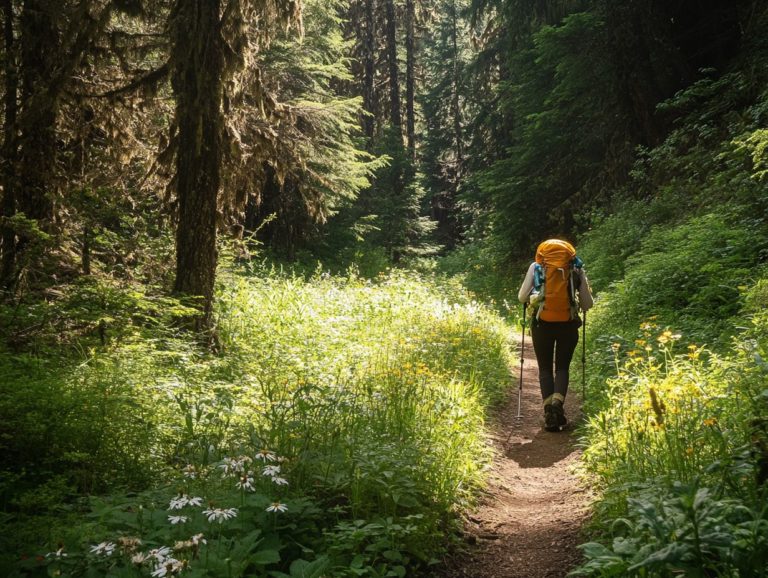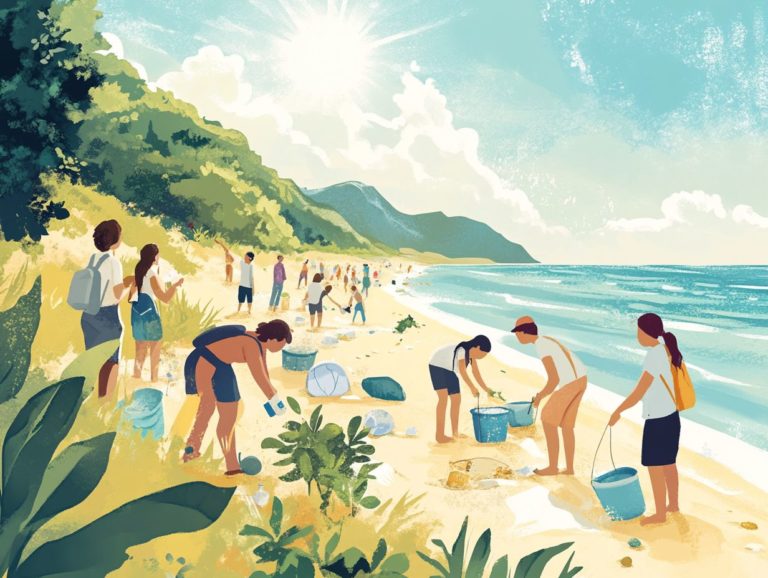Engaging in Local Conservation Projects Abroad
Dive into local conservation projects abroad. This is a remarkable way to engage with the environment and impact communities meaningfully.
You’ll discover the importance of conservation efforts and experience rewards that can transform your perspective.
This article highlights many benefits of participating in these projects. It guides you on selecting the right one and offers essential preparation tips for a fulfilling experience.
Embark on this enriching journey and uncover the profound connections you can make along the way.
Contents
- Key Takeaways:
- The Importance of Local Conservation Projects
- Benefits of Participating in Local Conservation Projects Abroad
- How to Find and Choose a Local Conservation Project
- Preparing for a Local Conservation Project Abroad
- Making the Most of Your Experience
- Frequently Asked Questions
- What is the importance of engaging in local conservation projects abroad?
- What types of local conservation projects can I get involved in abroad, such as those focusing on marine life or rehabilitation of endangered species?
- How can I find local conservation projects abroad to participate in?
- Do I need any specific skills or qualifications to participate in local conservation projects abroad?
- Will I be able to interact with the local communities while participating in conservation projects abroad?
- Is it costly to participate in local conservation projects abroad?
Key Takeaways:
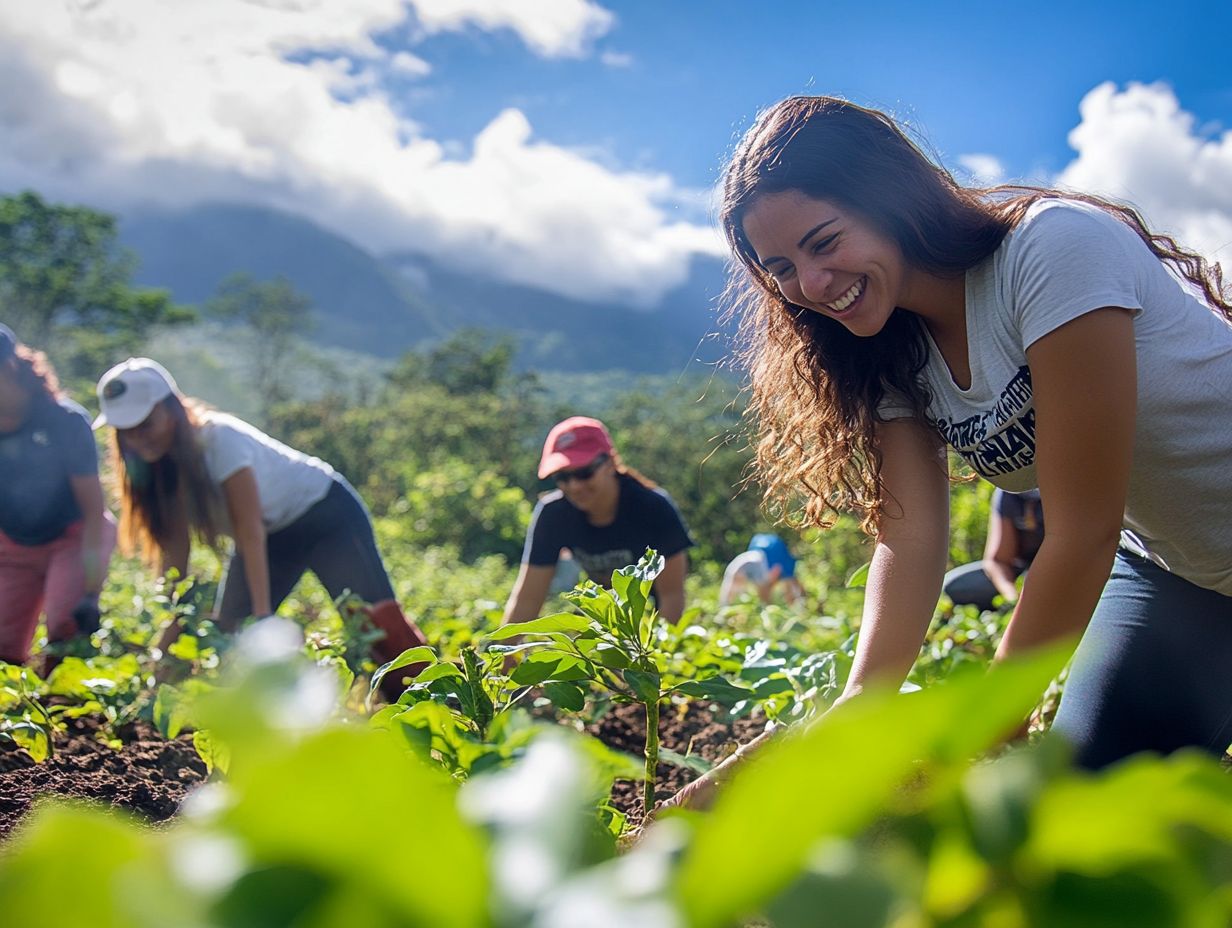
- Engaging in local conservation projects abroad significantly contributes to protecting the environment and communities.
- These projects promote personal growth while allowing you to give back to a new culture.
- Researching and preparing thoroughly leads to a successful and rewarding experience.
The Importance of Local Conservation Projects
Local conservation projects are essential for protecting wildlife and the environment. They address the unique challenges faced by specific ecosystems.
By participating, you provide hands-on support while gaining valuable training and experience. This empowers you to make a lasting impact.
Understanding the Impact of Conservation
Understanding conservation s impact helps you see how your local efforts shape wildlife protection and community engagement.
These initiatives foster appreciation for diverse ecosystems. They showcase the balance between human activities and nature.
When immersed in such projects, you learn about the challenges endangered species face. This experience builds a sense of responsibility within you and your community.
By raising awareness of local habitats’ interconnectedness, you inspire active involvement in preservation. This ensures future generations inherit a vibrant world.
Ultimately, these projects protect wildlife and deepen your understanding of conserving our planet’s natural resources.
Benefits of Participating in Local Conservation Projects Abroad
Engaging in local conservation projects abroad offers an exceptional opportunity for personal growth. You contribute meaningfully to vital wildlife conservation efforts across various ecosystems.
Personal Growth and Contribution to the Community
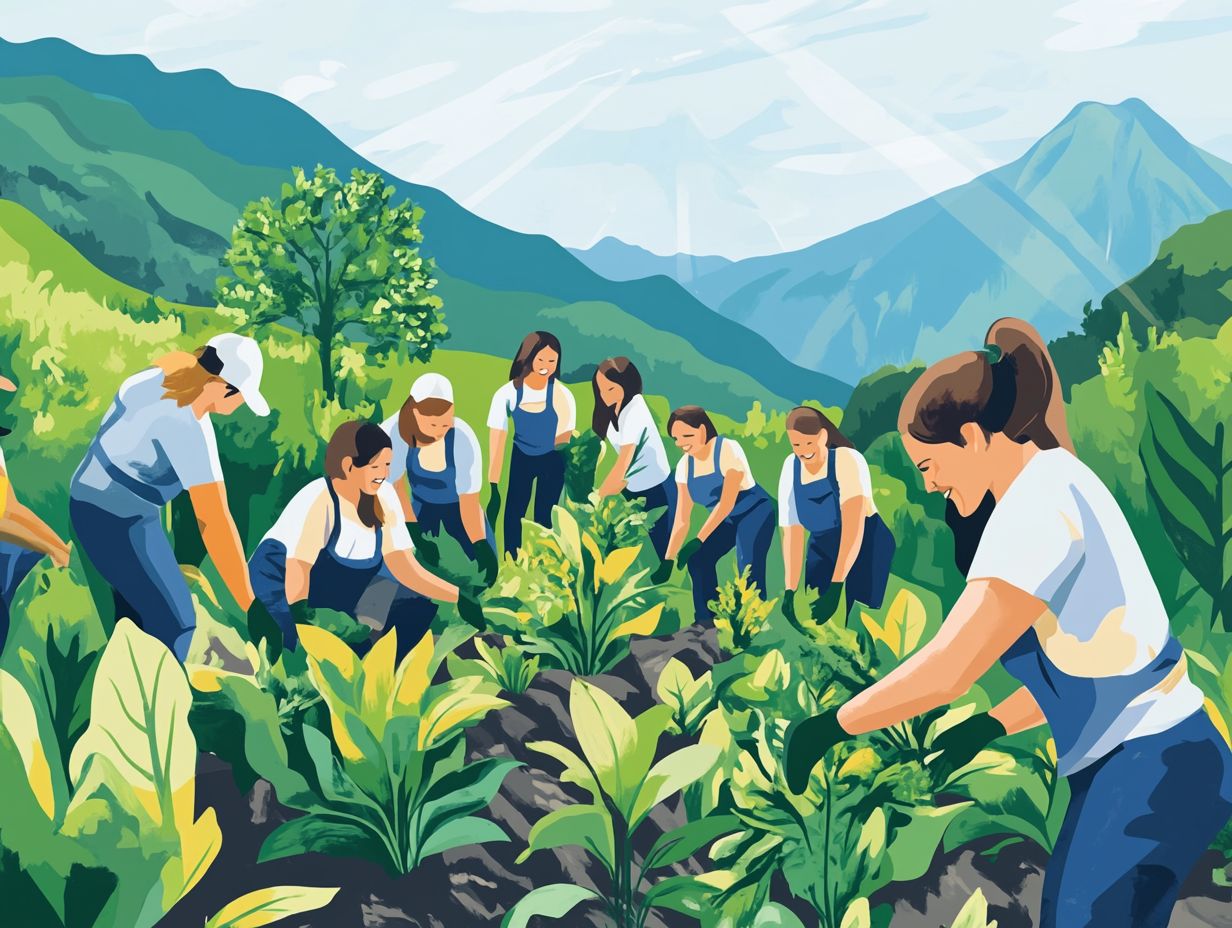
Volunteering in local conservation projects enhances your personal growth and makes a significant contribution to the community s sustainability and wildlife protection efforts. This involvement fosters community support.
By immersing yourself in these initiatives, you cultivate a deeper understanding of environmental issues while developing essential skills like teamwork, problem-solving, and effective communication. Join hands with others to create strong bonds while protecting our natural world!
As you engage in hands-on activities, you ll witness the positive outcomes of your efforts improved habitats and revitalized ecosystems that often inspire others to join the cause. Ultimately, these projects empower your local community, nurturing not just a love for nature but also a collective commitment to a sustainable future.
How to Find and Choose a Local Conservation Project
Finding and selecting a local conservation project requires careful research to uncover opportunities that resonate with your passion for wildlife and foster community support. By investing time in this exploration, you ensure that your involvement is both fulfilling and impactful, allowing you to make a meaningful difference in the world around you.
Researching and Evaluating Options
Effective research and evaluation of local conservation projects require you to assess the ethical standards, project goals, and community impacts associated with each opportunity.
To truly grasp the effectiveness of these initiatives, consider various criteria, such as the transparency of funding sources, the involvement of local stakeholders, and the long-term sustainability of the projects. Understanding how these initiatives respect the rights of local communities and biodiversity is imperative.
Engaging with the community enhances the project s relevance and ensures that local voices are integral to the decision-making process.
Gathering comprehensive information from credible sources be it research papers, expert interviews, or authentic testimonials from community members will help you form a clearer picture of the project’s authenticity and effectiveness, which is crucial for ethical volunteering.
Preparing for a Local Conservation Project Abroad
Preparing for a local conservation project abroad requires meticulous planning. Get your training now to make an immediate impact! You ll want to thoughtfully pack essential items that will enrich your volunteering experience across diverse ecosystems.
Every step you take now will enhance your contributions and allow you to fully immerse yourself in the unique environment you ll be working in.
What to Pack and Expect
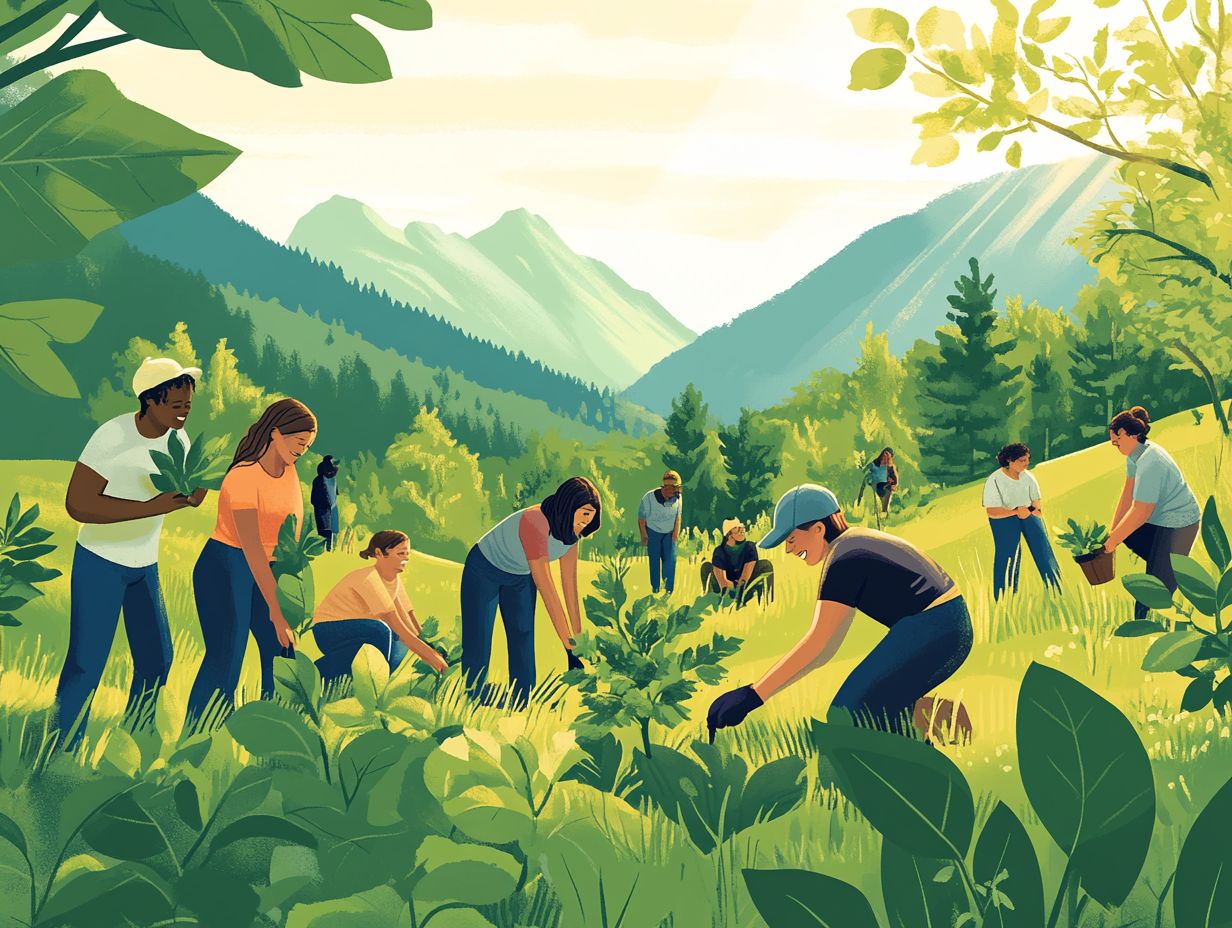
Packing for a local conservation project demands thoughtful consideration of the environment you’ll be engaging with and the specific wildlife and animals you might encounter. Ensure you re well-prepared for any situation.
This means bringing along durable boots designed for rugged terrain, lightweight clothing that can adapt to changing weather, and wildlife-specific gear like binoculars and field guides to help you identify and appreciate the species in their natural habitats.
To protect yourself from common health issues, include a basic first-aid kit and any personal medications you might need during your time there, especially when volunteering in remote areas.
Having educational materials on hand can enrich your experience, allowing you to deepen your understanding of the conservation methods in practice. Clear communication about daily activities is crucial, ranging from hands-on fieldwork to guided nature walks, ensuring you feel equipped and informed about your role in the project. Additionally, consider exploring volunteering abroad: eco-conscious contributions to enhance your impact.
Making the Most of Your Experience
To truly maximize your experience in a local conservation project, you should take an active approach. Engage deeply with the community and seize every learning opportunity that comes your way.
This will enhance your understanding and allow you to create a meaningful impact.
Tips for a Successful and Meaningful Trip
To ensure a successful and meaningful trip to a local conservation project, embrace an active approach and remain open to learning from both the community and the wildlife.
Building relationships with local communities is essential. These connections provide invaluable insights and foster mutual respect.
Engaging with residents allows you to grasp their traditions, concerns, and conservation needs. This ultimately enhances the project’s impact.
Staying adaptable is crucial, as unexpected challenges may arise. A flexible approach to problem-solving is necessary.
By continually educating yourself about conservation techniques and local best practices, you can significantly improve your contributions. This makes your efforts more effective and sustainable in the long run.
Frequently Asked Questions
What is the importance of engaging in local conservation projects abroad?
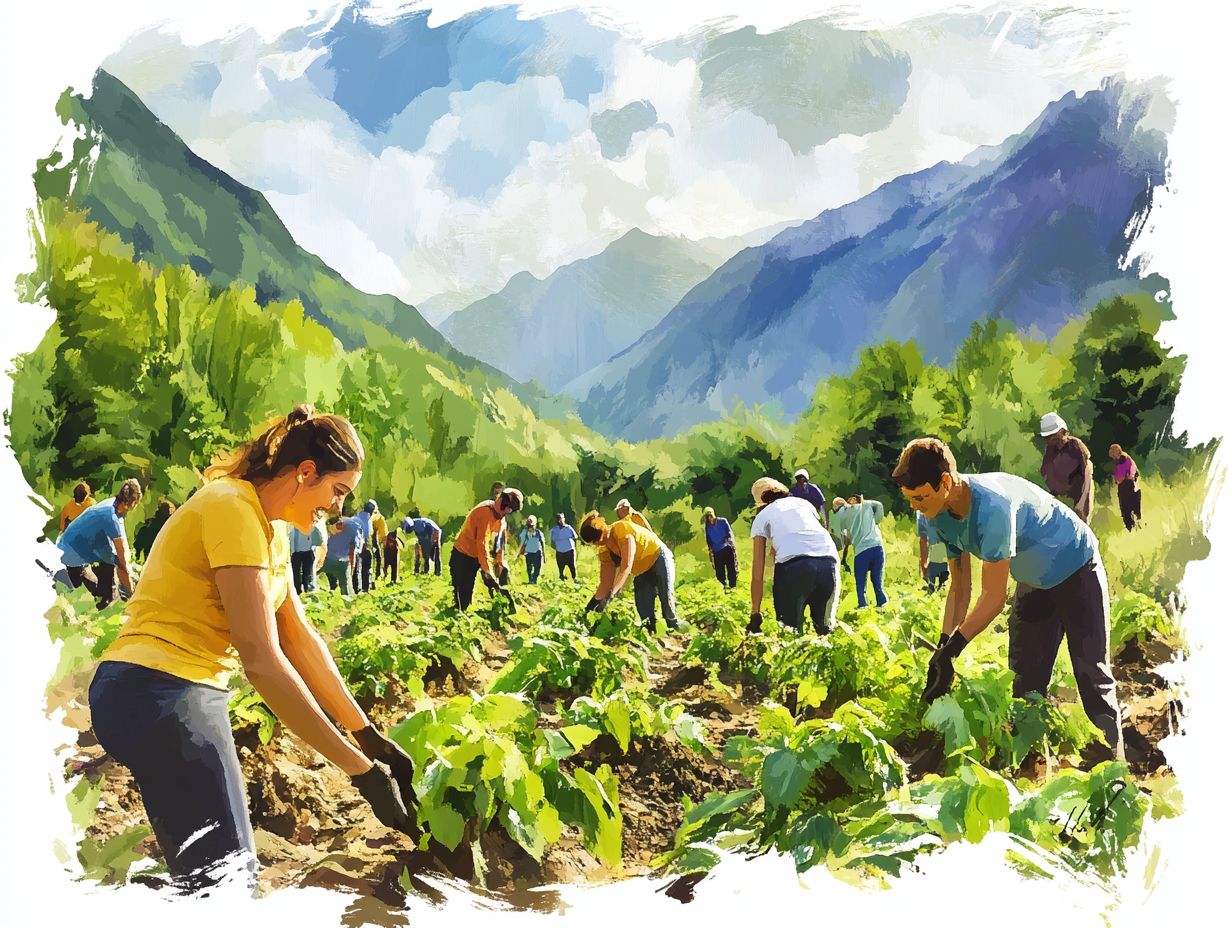
Engaging in local conservation projects abroad is important because it allows individuals to make a positive impact on the environment and local communities. It helps preserve biodiversity, which is the variety of life in the world, protect endangered species, and promote sustainable practices.
What types of local conservation projects can I get involved in abroad, such as those focusing on marine life or rehabilitation of endangered species?
There are various local conservation projects abroad, including:
- Reforestation
- Wildlife conservation
- Marine conservation
- Sustainable agriculture
- Community-based conservation
Choose a project that aligns with your interests and skills.
How can I find local conservation projects abroad to participate in?
You can find local conservation projects abroad through research, volunteering organizations, or by directly contacting conservation organizations in the country you wish to visit. It is also helpful to reach out to individuals who have previously participated in conservation projects abroad.
Do I need any specific skills or qualifications to participate in local conservation projects abroad?
It depends on the project you choose to participate in. Some projects may require specific skills or qualifications, such as scuba diving experience for marine conservation projects or knowledge in sustainable farming techniques for agriculture projects. However, many projects welcome volunteers of all backgrounds and skill levels.
Gaining experience through hands-on training can also enhance your opportunities.
Will I be able to interact with the local communities while participating in conservation projects abroad?
Yes, many conservation projects abroad involve working closely with the local community. This allows volunteers to contribute to conservation efforts, learn about the culture, and build relationships with the locals.
You can make a real difference! Consider participating in a local conservation project today!
Is it costly to participate in local conservation projects abroad?
The cost to join local conservation projects abroad can vary. Some organizations cover all expenses for volunteers, while others charge fees for accommodation and materials.
Research and compare your options to find a project that fits your budget and supports environmentally friendly practices. Excitingly, many programs offer internship credits that can boost your academic and career journey!

